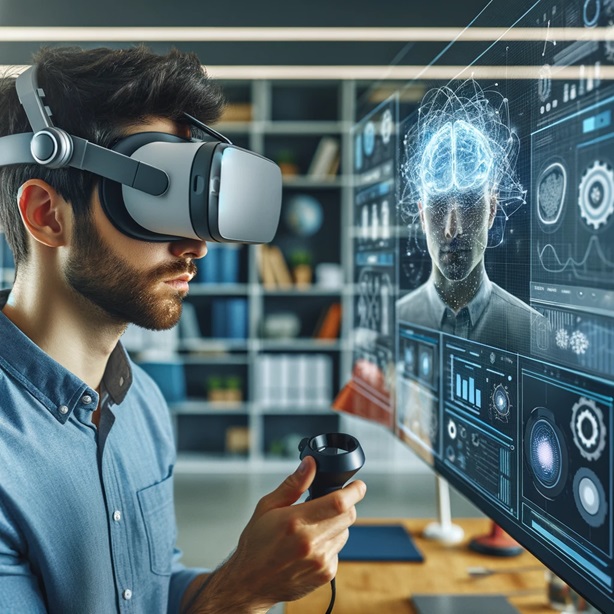Embracing Technology for Cognitive Development
As we venture further into the digital era, the intersection of technology and cognitive development is becoming increasingly prominent. Innovative apps and tools are revolutionizing the way we approach brain training, with a range of software designed to improve memory, problem-solving skills, and overall mental agility. These technological solutions leverage the latest research in neuroplasticity to create personalized, effective brain training experiences.
The Evolution of Brain Training Apps
Gone are the days of rudimentary brain games. Today's brain training apps are sophisticated platforms that use data analytics and artificial intelligence to adapt to the user's performance. They offer a wide array of exercises targeting different cognitive functions and can often provide instant feedback, ensuring that users are constantly challenged and can track their progress over time.
Virtual Reality and Cognitive Enhancement
Virtual reality (VR) technology has opened new doors for immersive brain training experiences. By simulating real-world scenarios, VR provides a dynamic environment for users to develop cognitive skills such as spatial awareness, reaction time, and decision-making. Its interactive nature not only aids in engagement and motivation but also allows for the replication of complex tasks that can be adjusted to the user's skill level.
Wearable Tech in Mental Health Management
Wearable technology is also playing a role in brain training and mental health management. Devices that monitor physiological data, such as heart rate and sleep patterns, can give insights into the user's emotional and cognitive state. This information can be used to tailor brain training sessions to times when the user is most receptive, thereby enhancing the efficiency of cognitive exercises.
Gamification and Learning
The gamification of learning and brain training has made cognitive exercises more engaging and enjoyable. By incorporating elements typically found in games, such as points, levels, and rewards, these apps encourage consistent use, which is crucial for cognitive improvement. The fun factor of gamified learning can lead to higher retention rates and longer-term commitment to brain health.
Conclusion
The future of brain training is here, with technology playing a pivotal role in shaping cognitive enhancement strategies. By harnessing the power of apps, VR, and wearable technology, individuals have access to a world of opportunities to boost their brain function. As these technologies continue to advance, we can expect even more sophisticated solutions to emerge, providing powerful tools for improving mental agility and addressing cognitive health needs.
